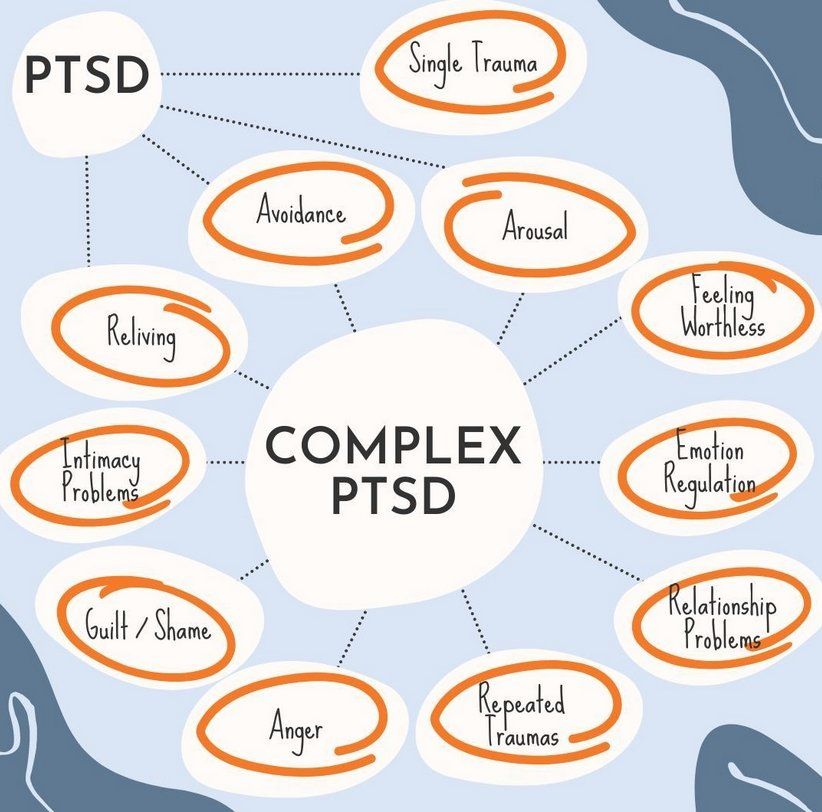Understanding Complex PTSD
The term "trauma" is often used to describe a single incident or even post-traumatic stress disorder (PTSD). However, this is not the complete picture when it comes to traumatic stress disorder.

Another key component of what we refer to as trauma is complex post-traumatic stress disorder (complex PTSD), often known as C-PTSD. While it is not usually about one catastrophic event, such as a war, a car accident, or a sexual assault, these kinds of catastrophes can also be included.
Complex post-traumatic stress disorder (PTSD) is less evident than a significant one-time occurrence in many cases since it typically involves what we did not experience rather than what we did encounter. The presence of developmental and/or attachment trauma is a common occurrence in the development of CPTSD. When we were young, it's possible that we didn't feel connected to one or both of our major caregivers because of a lack of attunement, mirroring, and connection. That would, without question, be a traumatic experience.
When we are young, we have difficulties with our own self-concept because we do not feel safe, seen, or heard, and we do not have anyone to console our young and still developing neurological systems. Young minds and bodies require scaffolding supported by the neurological system of another person, someone who can give you a sense of safety and security. Who possesses a strong feeling of self-control and tranquilly. Attachment and co-regulation are at the heart of what it means to be human. Because of this, we may experience discomfort and dysregulation due to a variety of factors, particularly as we get older and more complex.
That is exactly what "treatment" is intended to correct. It is for this reason that secure connections are so important in the healing process. In many cases, we require the assistance of someone skilled in teaching us how to comfort ourselves as well as someone who can teach us how to manage our nervous system for a period of time.
In reality, trauma is more about our internal perception of what is happening in relation to the people around us than it is about the actual event itself. Alternatively, we may have done so in response to an overwhelming experience that we were unable to contain or analyse in the moment.
While the concept of complex post-traumatic stress disorder (C-PTSD) is not new, it is not yet included in the fifth edition of the "Diagnostic and Statistical Manual of Mental Disorders" (DSM-5), and as a result, it is not officially recognised by many medical professionals. Although I am hopeful that it will happen soon, I am also hopeful that we will be able to begin properly diagnosing the myriad symptoms and offering the needed therapy and help at the earliest opportunity.
One of the most common reasons for a dysregulated neural system is trauma and/or early attachment or developmental difficulties. The good news is that we can correct those shortcomings at any point in our lives, and fortunately, the brain is infinitely malleable through neurogenesis, which means that we can and do recover when necessary.






